December 2016 Grant Recipients
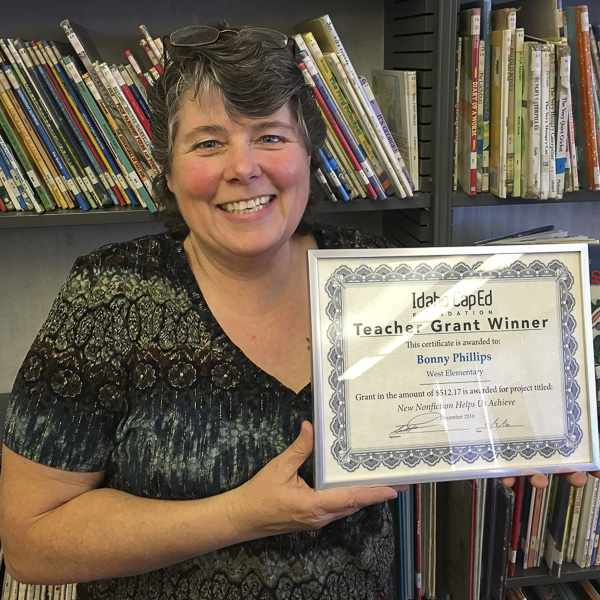
New Nonfiction Helps Us Achieve
Bonny Phillips - West Elementary
$512.17
Informational text is a type of nonfiction that conveys information about the natural or social world. Exposing students to this genre early offers great benefits for young readers. It provides the key to success in later schooling, prepares students to handle real-life reading, appeals to readers' preferences, builds knowledge, & boosts vocabulary and other kinds of literacy knowledge.
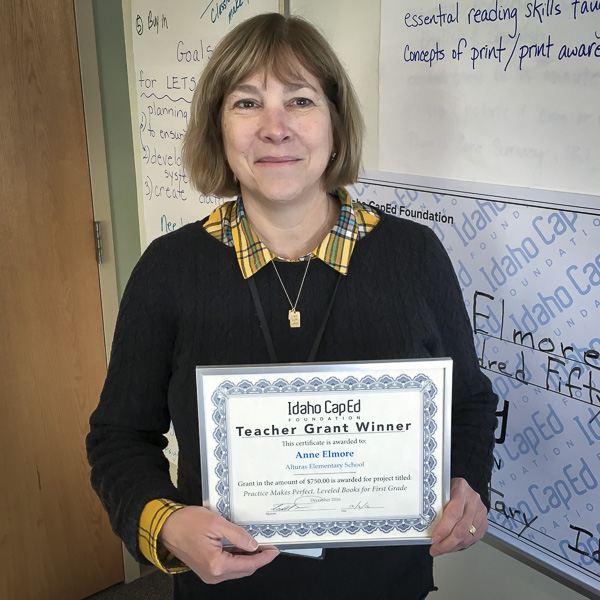
Practice Makes Perfect, Leveled Books for First Grade
Anne Elmore - Alturas Elementary School
$750.00
Our goal is to raise the reading level of First Grade students, through instruction in guided reading groups and including multiple opportunities to practice reading in class and at home with parents and family members. Our expected outcome is that more students will move from a 1 (Intensive) or 2 (Strategic) to a 3 (Benchmark). We are currently using an innovative model with four teachers and two paraprofessionals for instruction for four First Grade classrooms. With weekly progress monitoring and flexible grouping, our goal is to give the students the practice they need to be successful readers.
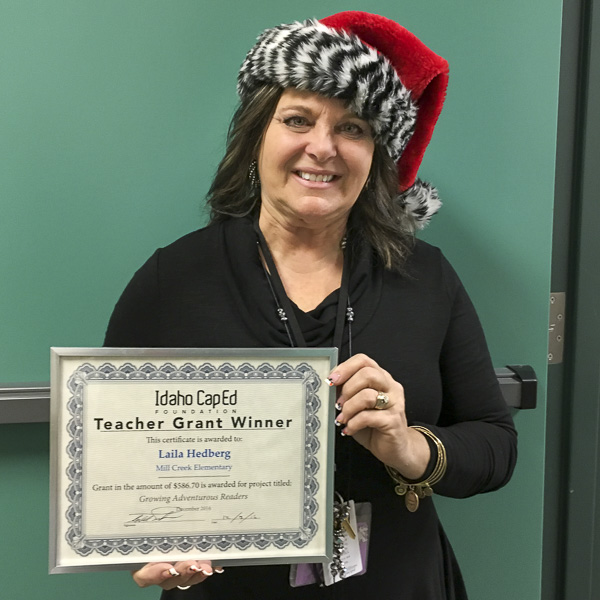
Growing Adventurous Readers
Laila Hedberg - Mill Creek Elementary School
$586.70
With this grant I can purchase MagicTreehouse fiction books along with the non-fiction companions and use them for in depth instruction that enriches CKLA. Think how empowering it would be for students to go back to their regular classrooms and present collaborative group projects from research and informational writing they’ve done to present to their own peers. I hope you will consider this wish and let Jack and Annie (two characters every second grade reader can identify with) carry my growing readers on their fictional reading adventure.
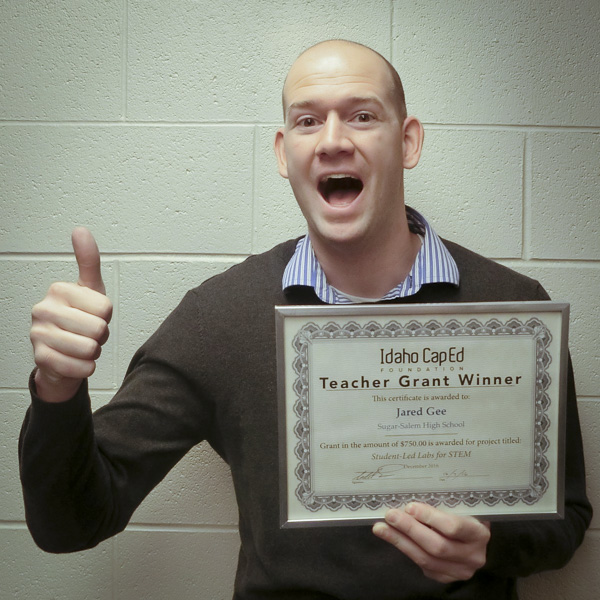
Student-Led Labs for STEM
Jared Gee - Sugar-Salem High School
$750.00
The best way for students to learn STEM skills now and be prepared for future STEM occupations is in the science laboratory. While traditional classroom lecturing and project-based learning certainly play a vital role in student outcomes, very few experiences can compete with a well-designed lab in increasing the depth of student knowledge. Our science program is in the process of improving our science labs by using traditional labs as a means to introduce lab tools. After students are familiar with the capacities of the tools and how to use them, they can then submit a proposal of something they would like to study in the context of each topic we cover.
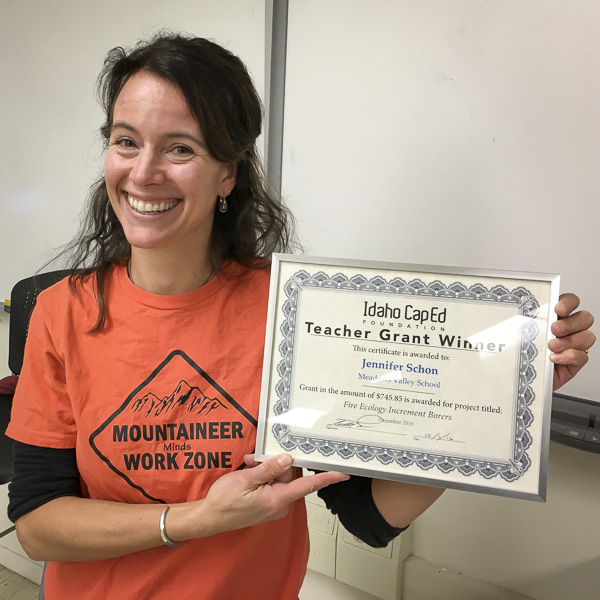
Fire Ecology Increment Borers
Jennifer Schon - Meadows Valley School
$745.85
One major aspect of this program is looking at fire history in the area and the impact of tree growth and ecosystem change due to the presence or lacking presence of fire. Increment borers are a tool used by foresters in many areas of study to learn about the age, fire history, weather patterns and ecological stresses a tree has encountered. The Fire Ecology course is a year long course that conducts research in various ecosystems around the school and surrounding area. Increment borers would be used throughout the year to learn more about each ecosystem studied and provide an opportunity to collect longitudinal data about trees on the school's campus.
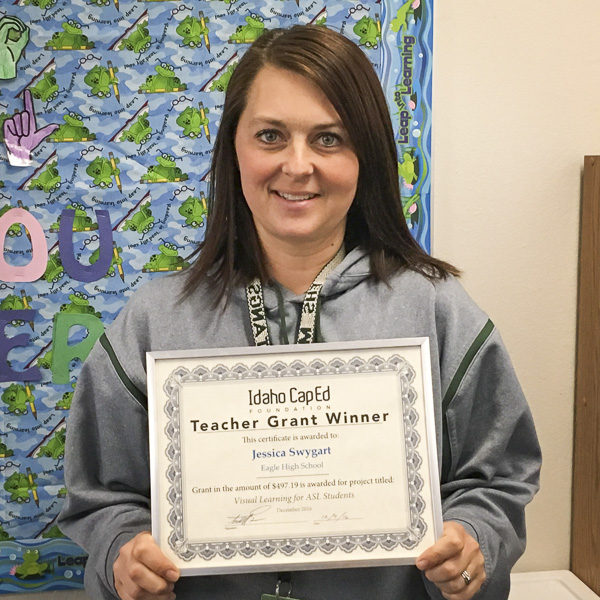
Visual Learning for ASL Students
Jessica Swygart - Eagle High School
$497.19
ASL is visual language that causes students to need technology to help develop the skills. In using the ipad in my class students are able to videotape themselves or others, pen pals with students near and far, communicate with deaf individuals near or far, participate in review activities, and have ASL dictionary. I have ipads but I am in need of traveling cart to hold the ipad, and charge them overnight so they are ready to go for everyday.
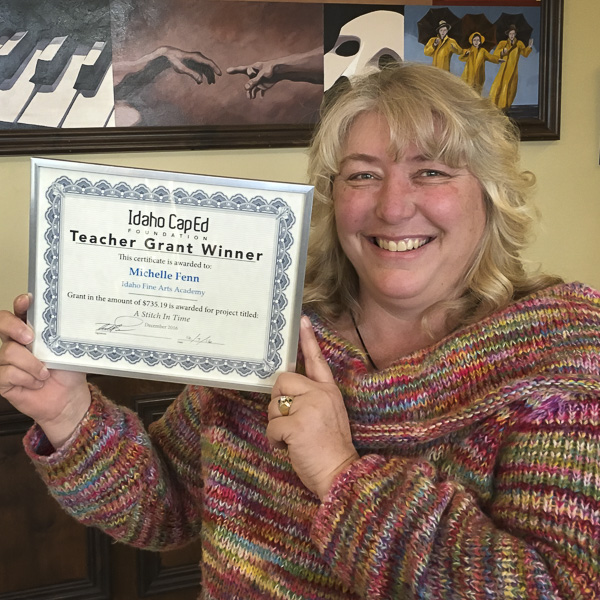
A Stitch In Time
Michelle Fenn - Idaho Fine Arts Academy
$735.19
Developing a costuming room will assist all art majors (dance, theater, music, and visual art) at IFAA for presentations, concerts, multi-media art, fashion designing, costuming, alterations, mathematical skills and problem solving.Currently students and parents work from home providing costuming for the theater department.
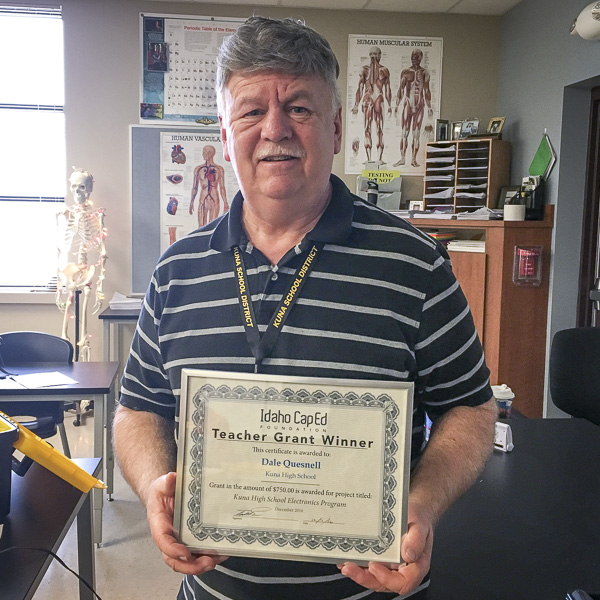
Kuna High School Electronics Program
Dale Quesnell - Kuna High School
$750.00
To introduce the student to rudimentary electronics in preparation for more advance electronic courses, the course will reinforce skill development in applied mathematics and physics through theory and laboratory assignments based on industry procedures and Idaho’s Electronic Technology State Program Standards. Students will be provided instruction on safety, introduction to the electronics industry, tool and equipment use, soldering techniques, and employability skills, and habits. Students will be involved in activities which will reinforce problem solving, teaming, language arts, science, and mathematics skills which use real-life industry examples and procedures. Labs will provide the students with “hands-on” experience and practical applications.
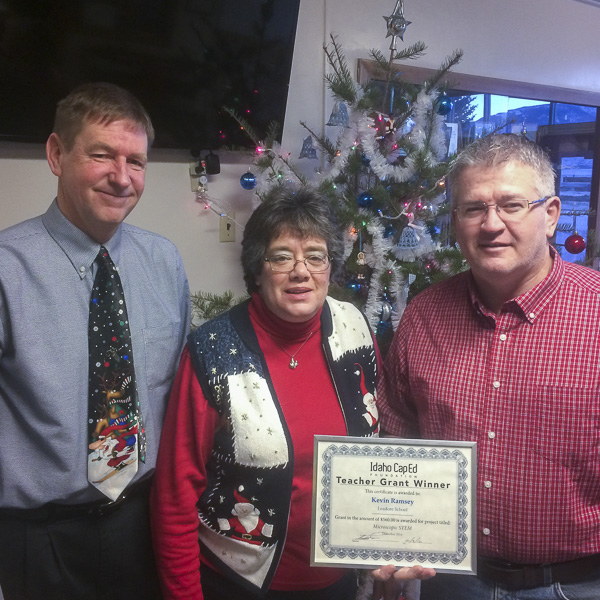
Microscopic STEM
Kevin Ramsey - Leadore School
$560.00
This year, the sixth grade class has been advanced and allowed into the junior high science classroom to work with the seventh and eighth grades. Mr. Shane Matson, the Jr./High school science teacher, has a limited number of microscopes available, of which, many are close to 50 years old. Mrs. Melody Kauer, the sixth grade teacher, wishes to supplement the curriculum from Mr. Matson's classes during the day in her own classroom. The problem is, there are not enough microscopes to allow the sixth grade to borrow them during the day since Mr. Matson needs them for other classes.